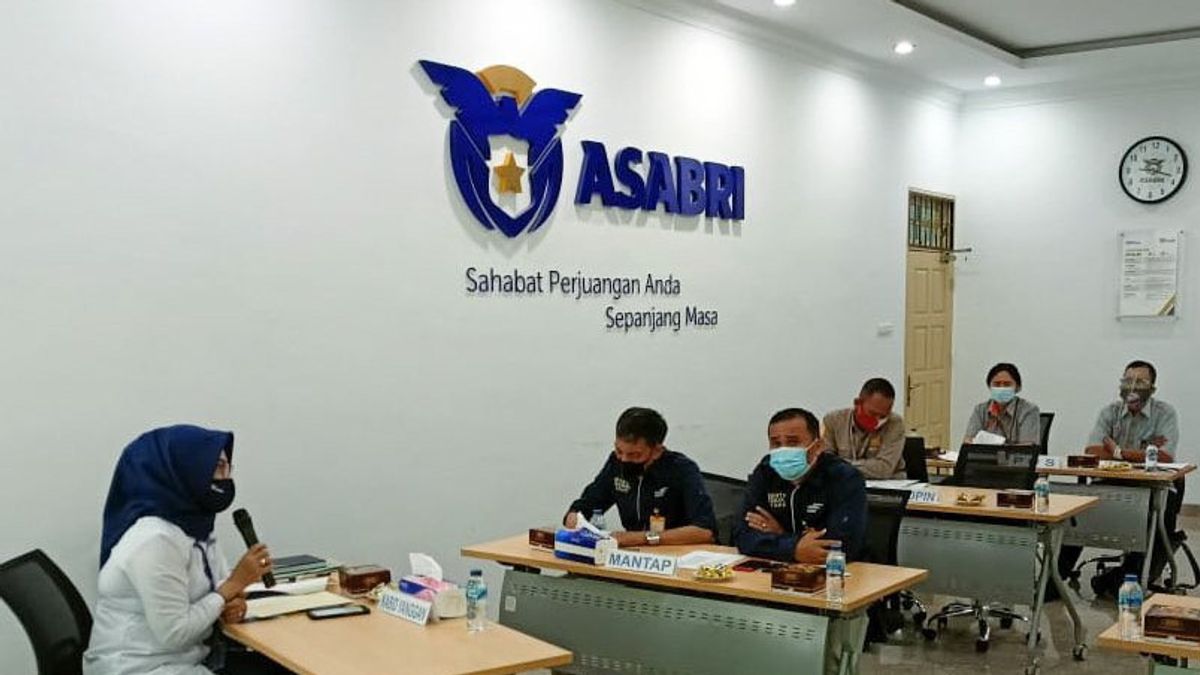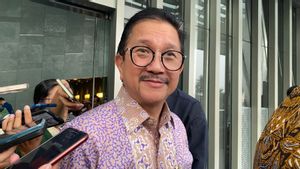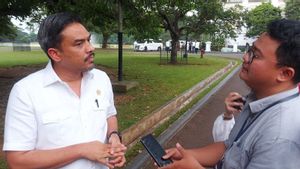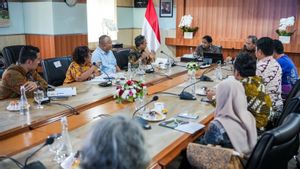JAKARTA - Professor of the Law Faculty of Padjadjaran University (Unpad) Bandung, Prof. I Gde Pantja Astawa, also commented on the controversial audit of the Indonesian Supreme Audit Agency (BPK) in the PT Asabri case which led to the prosecution's demand for the death penalty for Heru Hidayat.
Prof. Gde questioned the involvement of the BPK in conducting the audit so that it concluded that the state financial loss was Rp. 22.78 trillion. According to him, this is not appropriate because the Asabri case is not a matter of state financial losses.
"From what side is it said to be state finances. On what basis did BPK audit, if Asabri's funds came from the contributions of members of the TNI-Polri? Is it true that what BPK is examining is state finances?" said Prof. Gde in his statement to reporters, quoted Monday, December 13.
He explained that the legal form of Asabri is as a limited liability company (PT), so it is subject to Law Number 40 of 2007 concerning Limited Liability Companies, which in its management have its own Articles of Association / Bylaws (AD / ART).
As a PT, there are principles that apply to Asabri's financial management. If the core or core business is playing in volatile stocks, of course that is the company's policy and is not related to state financial losses.
According to him, the value of stocks or mutual funds that fluctuate cannot be ascertained because they continue to move up and down. This, of course, contradicts the notion of state financial losses, namely a real and definite shortage of money, goods and securities as a result of unlawful acts, whether intentionally or negligently.
"The name of this stock is volatile, how can we ensure it is a state financial loss? This is a strange thing in my opinion," said Prof. Gde.
Furthermore, Gde emphasized that BPK should not unilaterally conduct audits. The person or party being audited must be asked for confirmation if there is an alleged irregularity that results in state financial losses.
"That's a principle, you know! When it comes to state finances. However, this has nothing to do with state finances. I think this is inconsequential by the BPK, if what is being audited is about buying and selling shares and mutual funds," he said.
Then, Prof. Gde explained that apart from being under the Limited Liability Company Law, it is also subject to Law Number 8 of 1995 concerning the Capital Market, which if there is a case, then there is a separate solution.
"What's the deal with corruption, you know? The capital market has its own solution, even though there is a criminal clause in the Capital Market Law, but it doesn't go to corruption. We have to be objective in seeing this. controversial," said Gde.
Regarding the prosecution's demand for the death penalty against Heru Hidayat, Prof. Gde said it was just an agenda to find a stage.
"This demand for the death penalty has an agenda of seeking a stage and the prosecutors are too tendentious. From a justice perspective, it is true that those who harm state finances can be sentenced to death. But first, let's talk about it, are they really auditing it?" said Gde.
When asked what the impact would be if the BPK audit was later proven to be incorrect and Heru Hidayat had already been sentenced to death, Prof. Gde saw it as a cruel law enforcement.
"That's the danger of the death penalty, be careful! That later on this person was proven innocent, but people are already dead. This is really a cruel law enforcement, this is called tyranny. What do you want to do with dead people? So, be careful really apply it!" he said.
According to Gde, the most important thing in the Asabri case, when referring to the Limited Liability Company and Capital Market Law, is recovery. He also questioned the orientation of law enforcement in Indonesia, which according to him is still limited to taking action, but is weak in recovery efforts.
"This is more important, you know! What if there really is a state financial loss, the important thing is full recovery and returns. So that customers at PT Asabri don't feel victimized," said Gde.
"So the problem now is whether we are oriented to punishing people or returning? If I agree more, if it is subject to the PT and Capital Market Law, then return. It has nothing to do with corruption, this is a capital market crime," he concluded.
The English, Chinese, Japanese, Arabic, and French versions are automatically generated by the AI. So there may still be inaccuracies in translating, please always see Indonesian as our main language. (system supported by DigitalSiber.id)













